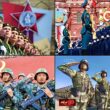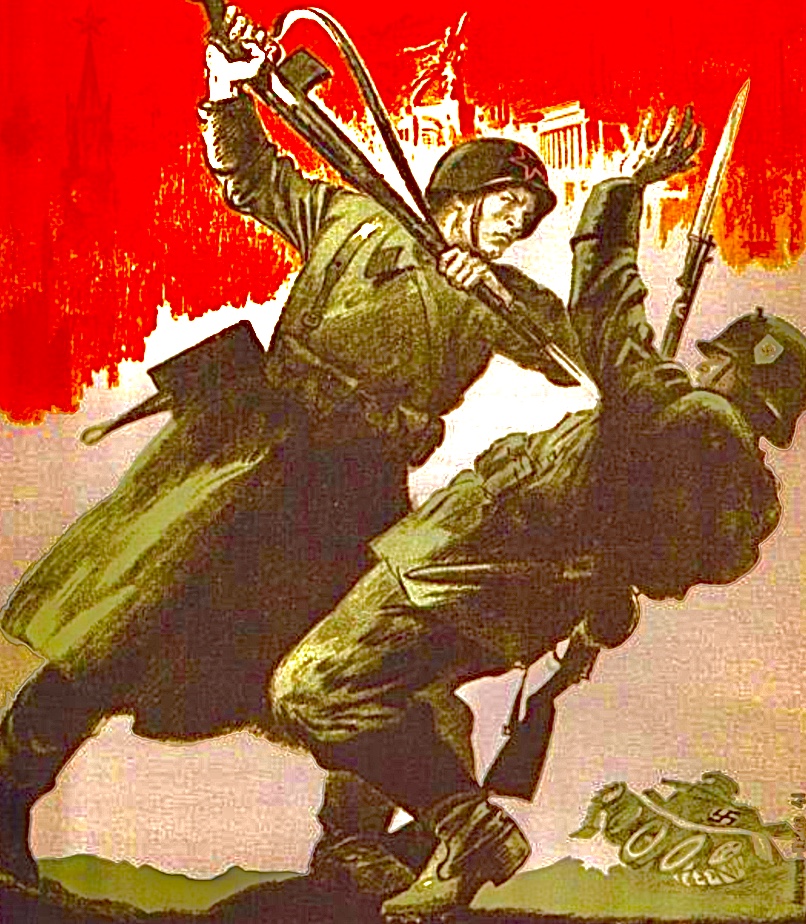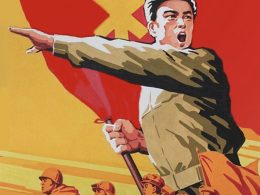The U.S. empire took a gamble on the geopolitical chessboard by provoking Russia into intervening in Ukraine. Now that it’s losing this gamble, having the U.S. and its allies economically suffer worse than Russia is while Russia remains on track to achieve its goals in Ukraine, there are going to be fatal implications for the future of the imperialist superstructure. These implications go beyond a faster transition towards a multipolar world, or a hastened decline of neo-colonialism as the Global South rejects Washington’s Ukraine psyops, or an acceleration of the decay of the exploiter countries. These things mean that the imperial center now has greater potential of having its social stability shattered, of entering into a civil conflict that destroys its capitalist state.
It’s important for Marxists in the core to study the ways in which these global developments are impacting our own conditions, because recognizing this breakdown that our society is headed towards affirms the need to overthrow the bourgeois state. Multipolarity is not the end goal of the communist movement. Multipolarity is only a stepping stone towards a scenario where the United States has been not only weakened, but abolished in itself, made no longer able to wield any of the global power which it uses to exploit the peripheral countries. Operation Z is the catalyst for U.S. imperialism’s final stage of decline. The more this decline progresses, the more potential there is for the core’s proletarian movement to defeat the state.
Imperialism’s global vulnerabilities mirror its internal ones
Russia took action because it saw that even though Washington would retaliate by inflicting great economic harm upon it, and by rallying the imperialist countries to the effect that Sweden and Finland would join NATO, these costs would ultimately be outweighed by the strategic benefits. The U.S. bloc, not the Chinese-Russian bloc, is the side that’s going to lose in this conflict. NATO’s expansion, and the economic breakaway of Germany from Russia and China, have only sped up the decay of the U.S. bloc. Europe and the U.S. have condemned themselves to an incurable energy crisis and depression, exacerbated by their past sabotages of stability in oil supplier countries like Libya.
The overall outcome is going to be that Russia and China come out of this stronger than Washington, because they’ll be able to rely upon partnership with the Global South. Washington’s grip over the formerly colonized world is going to continue to slip, leaving it and its partners too isolated to function. The Ukraine proxy war was intended to reverse the decline of neo-colonialism by weakening Russia so much that it can be Balkanized and taken over, leaving China vulnerable to Washington’s hybrid war campaign and in turn destroying the BRI. But Russia won’t be broken, so it’s guaranteed that the BRI will keep undoing the global inequities which neo-colonialism needs in order to survive.
Because Russia, with the guidance of its leading communist party, has identified the growing vulnerabilities of imperialism, Russia is now exploiting those openings for shifting the global power balance. Communists in the core must take example from our Russian counterparts. We must identify the weaknesses that are appearing in the empire’s internal workings due to this geopolitical defeat, and figure out how to exploit them. Like how Russia’s strategic competence has brought about the liberation of the Donbass from Ukrainian fascism, the strategic competence which we’ll hopefully show will liberate the American working class. A task that first will entail the freeing of the colonized nations which are currently confined within the prison house of nations that is the USA. This parallels how the Donbass has had to free itself from fascist rule as a most immediate necessity.
To get an idea of how to liberate the land currently occupied by the USA, we can look to how the occupier’s global interests have been undermined by its own imperial deficiencies. The Viet Minh were able to defeat the U.S. because the U.S. didn’t have goals that were in the interests of the Vietnamese people; it only sought to prevent the people from democratically deciding their own fate, and it did so by committing genocide against them. Naturally, the people backed up the anti-imperialist forces. The Taliban was able to defeat the U.S. for the equivalent reasons, with Washington’s counterinsurgency in Afghanistan including its own set of atrocities. The people responded by not acting loyal to Washington. The Russians are defeating Washington because the pro-U.S. regime exists due to a 2014 coup against Ukraine’s democratically elected government. This regime is committing war crimes, destroying its ability to win the people. So the people of the Donbass have provided the social base for a separatist insurgency, and have recently voted to let the separated area become part of Russia.
They’re all the same story: imperialism goes against the people’s interests, then the people make it possible to throw off imperial control. The conditions that can re-create this story in America are not yet present, as if we were to try to launch a revolution in the U.S. today, it would fail. What gives the U.S. government reason to be concerned is that our conditions are not static, and will continue to change in favor of revolution. Society under capitalism has never been stable, it’s always been in a state of disequilibrium due to the economic system’s naturally creating crises. When these crises reach a breaking point, and an adequate revolutionary organizational structure is in place, revolution happens.
A number of our crises have already reached critical proportions. There’s the pandemic that’s wiped out over a million American lives and disabled millions more; the rise in police violence that’s provoked the largest protest movement in the country’s history; the economic inequality that’s made almost two-thirds of the population have to live paycheck to paycheck. The stagflation and financial crises are combining to produce an unprecedented economic unraveling, and the climate crisis is anticipated to produce history’s largest upward wealth transfer during our generation. The decline of the people’s conditions is reaching a stage that will make for the demise of the state, so long as the people have been sufficiently organized towards asserting their agency. The state aims to stop them from attaining this goal, using the same warfare methods it’s employing abroad.
U.S. strategists preparing for a civil conflict scenario
We know the U.S. government is alarmed about the potential for those revolutionary conditions to be met, because military strategists are engaging with the idea that civil conflict is coming. This year, senior fellow for the Homeland Defense Institute Franky Matisek reacted to the Ukraine conflict by calling for a greater effort to ensure against instability within U.S. borders. Matisek concluded in an essay for the U.S. Army War College’s “war room” blog that “the average American must be a part of the solution and contribute to the resilience of civil society.” With the implied problem being that Washington’s geopolitical challengers allegedly seek to undermine support among U.S. citizens for warfare measures:
China, Russia, and other adversaries have figured out the lessons of what happens when the U.S. military is directly confronted, as seen in Iraq in 1991 – and again in 2003. America’s enemies understand that the nature of American political willpower is directly linked to the likelihood of the U.S. mobilizing and projecting great amounts of national power — diplomatic, informational, military, and economic. Hence, there is every incentive to cause damage against the U.S. on par with another Pearl Harbor or 9/11 but without provoking a major American response. This is why China and Russia increasingly pursue sociopolitical-information warfare strategies against the U.S. and other Western democratic nations. Inflicting damage against civil society “by amplifying racial, cultural, political and religious cleavages” weakens democratic institutions, norms, and values – not to mention preventing the creation of coherent policies to confront China and Russia. Adversaries exploit this new battlespace blind spot and prevent a robust Western response.
This perspective is influenced by the standard paranoia among new cold warriors. Yet that paranoia serves a purpose, which is to rationalize treating dissent like a military threat. These statements about antiwar sentiments being products of foreign interference all rely on the premise that such sentiments are necessarily based in incorrect ideas, and therefore can only exist due to deceptive foreign propaganda. This premise is of course silly. If foreign powers weren’t waging any kinds of information warfare, opposition to U.S. war would still exist based on its own merits. To stop the people from coming to anti-war ideas—and by extension from coming to revolutionary ideas—the state needs to convince them that truly organic opposition to war does not exist. That all ideas which dispute the need for aid to Ukraine, U.S. military presence in Taiwan, military buildup in Africa, sanctions on disobedient countries, etc. originate from lying foreign powers. And that any anti-war outlets or individuals which aren’t tied to these powers are only repeating the lies.
The idea that the state’s cognitive warfare must train citizens to preemptively reject information which goes against imperialism’s narratives has come to be consistently shared by national security thinkers. Matisek states that “Critical thinking skills and resisting foreign attempts to polarize and divide Americans along various societal cleavages, also means not sharing divisive memes created by an adversary.” This builds upon what a 2016 Army War College document on the future of urban warfare said about how the military will need to handle the propaganda battle should fighting break out in U.S. cities: “The user-friendliness of mass media and mobile technology allows adversaries to manipulate and garner favorable public opinion and recruit support. For these reasons and more, civilian and military leaders cannot afford to ignore the requirement for compelling narratives.”
The solutions the document offers are surveillance, censorship, and carefully crafted media stories, with the goal of tracking down and countering individuals who seek to expose the war crimes the military will no doubt commit in that scenario. It will be a repeat of the Ukrainian regime’s campaign to brutally silence dissent, and to spin stories which portray the dissenting views as not factually grounded.
The idea that opposition to the U.S. government can invariably be traced to foreign interference is a useful lie for national security strategists. But a lie which doesn’t serve them, and which gets promoted in Matisek’s analysis, is that action on Washington’s part necessarily brings strategic defeats for those challenging American hegemony. This idea has and continues to be orthodoxy within the foreign policy sphere, as evidenced by how Washington is still sending aid to Ukraine despite it being unrealistic for Kiev to reach its objectives. And it’s an idea that leads Washington to undermine its own interests out of hubris.
Within the definition of victory that Matisek uses, where defeating the intended target in symmetrical warfare is counted as a win, Desert Storm and Iraqi Freedom were “victorious.” But in the macro context, Washington undermined itself with these actions. Because of the genocidal violence the U.S. has perpetrated against Iraqis during recent memory, the Iraqi people have refused to consent to Washington’s wishes, and have joined up with Iran. They’ve also waged a revolt against occupation, one too strong for Washington to be able to make its operations in Iraq clean. Consequently, Washington’s global credibility has diminished, exacerbating the imperial death spiral that Afghanistan started. When the military starts domestically applying the insurgency methods it’s used in these places, it will be met with an equivalent popular reaction. The American people will become alienated from their government, because it will have inflicted the same kinds of violence upon its own people.
We know that our government is at some point going to impose an internal version of the Baghdad military crackdown not just because the War College has named U.S. cities as potential future intervention locations, but because the conditions are headed for a scenario where the ruling class will be incentivized to make these plans a reality. The only reason why they didn’t go this far in 2020 is because the Democratic Party was sufficiently able to co-opt the black liberation struggle. Trump wanted to take the repression to that level, but the national security state decided there wasn’t yet a need for it. The crackdown won’t come until we’ve built our revolutionary institutions into serious threats to the state. The ruling class knows what kinds of costs would come from showing the people just how little human lives mean to our government, and wants to hold off on it for as long as possible. But eventually, that escalation will happen.
Ukraine’s slow defeat foreshadows the USA’s fate
Another flaw in Matisek’s point about the impacts of U.S. actions is that Ukraine has shown Washington doesn’t even need to directly wage wars to bring unintended consequences upon itself. The Ukraine proxy war was supposed to incrementally render Russia too unstable to function, but the blowback is bringing the U.S. bloc closer to itself suffering such destabilization. I’m not just talking about the catastrophic impacts the sanctions are having on America and Europe, I’m talking about how Russia is effectively demilitarizing both Ukraine and NATO.
The spare weapons of the U.S. and its allies are running out. Now that Ukraine’s military has been essentially exhausted, Russia is able to also start exhausting the supplies that NATO is sending. NATO is at this point having to give Ukraine sub-bar equipment, such as hummers in place of tanks or military vehicles and outdated technology in place of the current models.
Russia still has arms factories, which are keeping its weapons production robust. The U.S. is increasingly needing to sacrifice the amount and quality of its aid to Ukraine, making Kiev have to stretch out its resources. This deficiency is both because Washington has a global series of occupations to maintain, and because the U.S. military-industrial complex is not prioritized around ensuring victory but around making profits. The USA’s nature as an empire has handicapped its combat ability, rendering the American war machine crippled by its own corruption and bloat. Russia, being a semi-peripheral country that only intervenes in response to imperialism’s provocations, can focus on one military effort at a time.
Russia is using on the USA the classic combat technique of conserving one’s own fighting capacity, while letting the other fighter tire themselves out. Ukraine has only been gaining control over increasing numbers of localities because Russia has decided to trade land for time. It’s having Ukraine exhaust itself by fighting for strategically unimportant soil, while only a comparative fraction of Russia’s forces get used up. At some point Russia’s territorial “losses” will be reversed, and Ukraine will be reduced to nothing more than a devastated shell which Washington uses to carry out ineffectual terrorist attacks. Should the fears of the War College come true, and the U.S. government find itself fighting against domestic insurgents, the equivalent will happen. At least so long as the U.S. repeats its current pattern of reactively massive military efforts, and so long as the government’s opponents act according to Russia’s model of letting your enemy defeat themselves.
The crucial factor is restraint on the part of the rebels. Whether the revolutionary crisis in the United States will produce a confrontation parallel to Cuba’s guerrilla war, or something different in which the revolutionary side needs not so much military capacity, the state’s demise is ensured if the revolutionary side avoids recklessness. The most important goal for our revolutionary cadres at this moment is to win the support and participation of the people, with militancy being something that must not be excessively focused on. However much or little need for combat may be brought about by our conditions, the state will be subdued only if we have the people on our side. Whether the state undoes itself by going too far in its repression and provoking an uprising, or by expending too many arms in a military confrontation, the variable which brings revolution will be a social base for that revolution. We can only cultivate that social base by acting in a pragmatic fashion, by not rushing to action with haste.
Just as applicable is the advice that we shouldn’t underestimate the importance of militancy. History not only shows that militancy training without mass support brings defeat; it also shows that mass support without militancy training can bring even worse defeat. In Indonesia, the communist party had the support of the people, holding hundreds of thousands of members and exercising great sway over the country’s government. The party’s leaders, who were influenced by the Khrushchevite idea of seeking peace between the classes, ignored advice to arm their members. When the CIA installed a military dictatorship, and coordinated a mass murder campaign against communists and leftists, the party’s members were wholly unprepared to defend themselves. They were prey.
The idea which Russia’s slowly unfolding victory in Ukraine conveys about military theory, and about power struggles more broadly, is that it’s possible for those who would otherwise be vulnerable to become the predators. For the less powerful players to turn those with the supposed advantage into the prey.
Under fascist Ukraine, the Ukrainian speakers enforce an order in which they’re placed above the Russian speakers, so much that the marginalized people are viewed as pests who don’t deserve to exist. “Ukrainian nationalists openly declare they view Russians as sub-human,” the journalist Eva Bartlett has written. “School books teach this warped ideology. Videos show the extent of this mentality: Teaching children not only to also hate Russians and see them as not humans, but also brainwashing them to believe killing Donbas residents is acceptable. The Ukrainian government itself funds neo-Nazi-run indoctrination camps for youths.” The equivalent dynamic of abuse is perpetuated by Americans against the rest of the globe, with American children taught that their country is exceptional while their government routinely commits genocides. Yet even with all this power, both the fascist Kiev regime and the American empire are being drained of their strength. As assessed by a Donbass commander who Bartlett has interviewed:
America is running the show here. It builds foreign policy on the basis of how its domestic policy is built, which is through conflicts with external countries. They are accustomed to proving their power to their people through terrorism around the world, inciting fires in Syria, in the east. They played the card of radical Islam there. And now they are playing the card of fascism. They do not see themselves on the other side of good. They need wars, blood, cruelty, and they signed Europe up for this. However, they’ve missed one point: Russia, since the days of the Soviet Union, has never retreated in large scale wars. They took Europe and pushed it to slaughter Russia, and they put Russia in such a position that it must secure its national interests. Europe needs to understand this, to pay attention to history, to stop being led by the United States.
NATO is unraveling. Washington is waging war against at least one NATO member, that being Turkey in retaliation for Erdogan’s war against Washington’s Rojavan terror forces. The U.S. empire is meddling in Germany’s politics to ensure the country goes against its own economic interests by turning away from Russia and China. America and Europe are responding to their crises by retreating into a fascist cocoon, in which reactionary terror is intensified but the system’s global extractive base can’t be restored. Operation Z has accelerated the decline of imperialism, and this has made the core of imperialism better able to be defeated from within.—————————————————————————
If you appreciate my work, I hope you become a one-time or regular donor to my Patreon account. Like most of us, I’m feeling the economic pinch during late-stage capitalism, and I need money to keep fighting for a new system that works for all of us. Go to my Patreon here.








